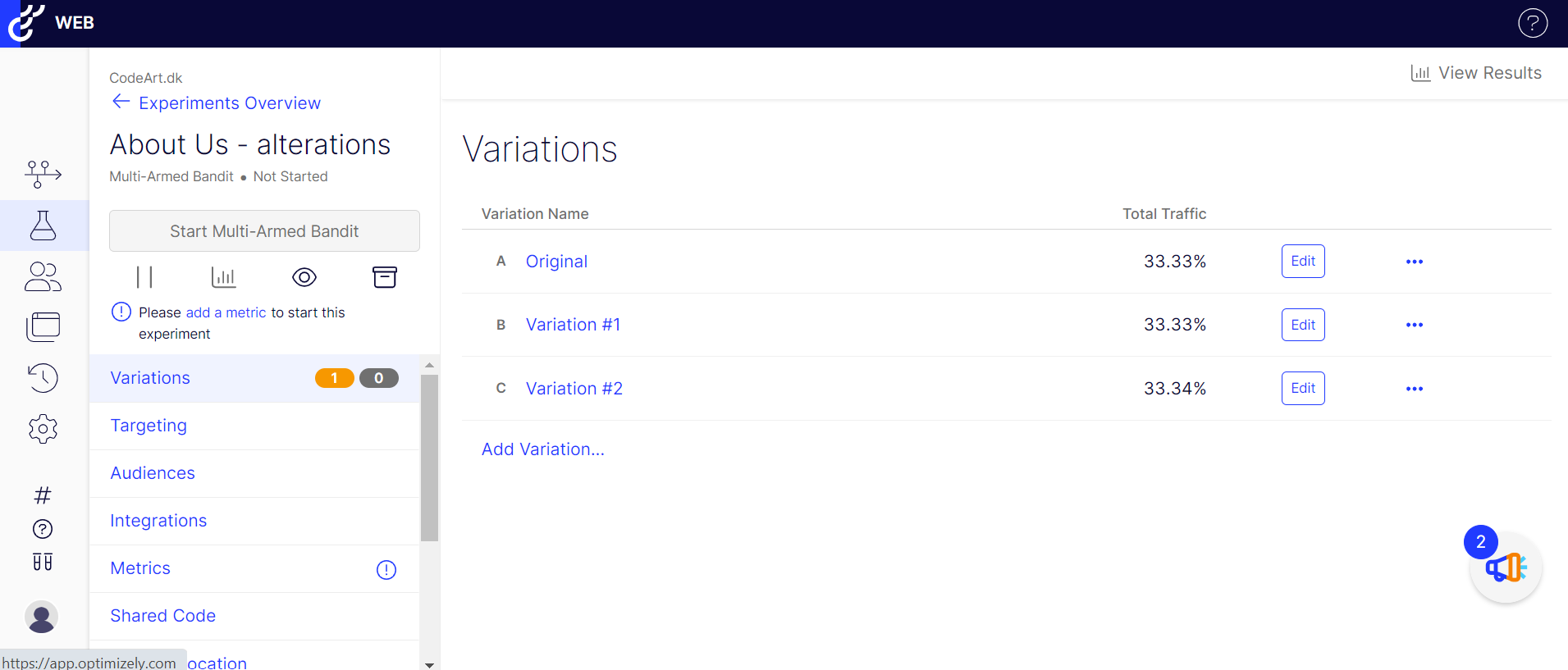They day you go live with your new website is naturally the culmination of months, sometimes years of work - and it's fine to celebrate. But #2 on this top 12 list of common pitfalls is to think that going live is the completion of the website. It's not. It's the start...
The 2023 Christmas Countdown: 12 Common Pitfalls in Optimizely CMS - and how to avoid them
This blogpost is part of the 2023 Christmas Countdown series where I each day for the last 12 days before Christmas go through my Top 12 list of the most common and dangerous pitfalls I typically see in Optimizely (EPiServer) CMS 12 Implementations. If you want to learn more and perhaps have your own site evaluated feel free to reach out to us here at CodeArt.
Here are links to all the posts in this series as they are published:
12, 11, 10, 9, 8, 7, 6, 5, 4, 3, 2, 1
2 days till Christmas. By now I hope most of your holiday shopping is done, your fridge is stocked and presents are piling up. By the way (and this is a complete side-note) if you need a really geek-cool way to label the Christmas presents this year, use this cool feature made by the original Episerver founder, Mikael Runhem and his team at Blippa: https://obj.blippa.com/svyRb8pTdPl8TiRB. It's a free service that let's you create dynamic QR codes to put on your presents - codes that can only scan and reveal the recipient at the exact time you set - so no sneak peaks for the kids to see which presents are for them before time.
But I digress. We should dig into yet another big problem I see in many (!) organisations when they make plans for their websites.
I often use house-building analogies when talking to people about websites. You need a good foundation, get the right workers with the proper skills. Decide which bricks it should be built of and ideally choose simple and robust and standardized solutions to save cost and ensure good future maintenance and usage.
But maybe I should stop. Because unlike a building, making a good online experience is not a project that ever should stop and be 'done'.
The real progress and result-producing site doesn't come from one good 'project', not one major revolution. No, the best results comes after a period of constant evolution, experimenting, measuring and improving - over and over again.
This applies to the actual design and development process - every single developer and project manager out there has certainly tried to be close to the launch date and see all the cool and value-producing features being cut last minute to make a deadline with the implicit promise of "we'll just add that in v.2" - and deep down inside knowing that since v.2 isn't budgeted or planned it's unlike to ever come. At the most it will be putting out fires or fixing vulnerabilities desperately post launch.
This is why I always prefer to work with clients who upfront agrees that we should have an on-going contract without a specific end date. Instead of just working towards _the_ launch we will constantly measure and improve the online experience - and it's in the long game that the value is.
But naturally this way of thinking also applies to the business users - the editors, web managers and content creators. It's not enough to just publish a press release now and then, or run a campaign every year at black friday. No, there's a wide variety of re-active and pro-active tasks that should always be ongoing and always on your agenda.
Examples of reactive tasks:
- Check the 404 redirect suggestions in the NotFound handler and react if some users are being directed towards a 404 on your site. That is potential business lost.
- Go to your Search & Navigation UI and see the most searched terms without hits and without clicks. Find out why they are without hits and clicks and make sure they lead the way you want them to. Fact: Visitors using the site search on your site are looking for something specific. It's usually in your best interest to make sure they find it (if it's there to be found - if it's not then think about if it should be).
- Check Google's search console regularly - any indexing problems? Any changes in SEO positions? Find out what's wrong and react
- If you have some kind of visitor recording (like HotJar, Mouseflow, Matomo, ..) set aside some time on a regularly basis to sit and watch some sessions. Usually seeing real user behavior is one of the best ways to learn how to improve.
- Check your web analytics / statistics tool often. But not just to brag if it's going well - or find excuses when it's not. No, focus on finding actionable insights and see how you can use that information to improve the online experience
And then there are the pro-active tasks:
- Finding new ways of attracting visitors
- Explore ways to convert more visitors
- If you have an e-commerce site explore personalization ideas and recommendations to see if you can increase the average order value
- Explore new markets
- Try setting up clever campaigns
- Use marketing automation to streamline and automate communication with leads and customers across channels
- Start using Experimentation. Optimizely Web Experimentation is a great place to start. Set yourself a challenge for 2024 like thinking of a new experiment to do every week on your site. Set it up in web experimentation, measure the results and follow-up to see the effect.

Tip: Look through the above tasks. Are you doing them today? All of them? Should you be doing more? Well - you are in luck - there's still time to make new years resolutions for 2024 - and if you need help getting started, reach out and we'll help you.

